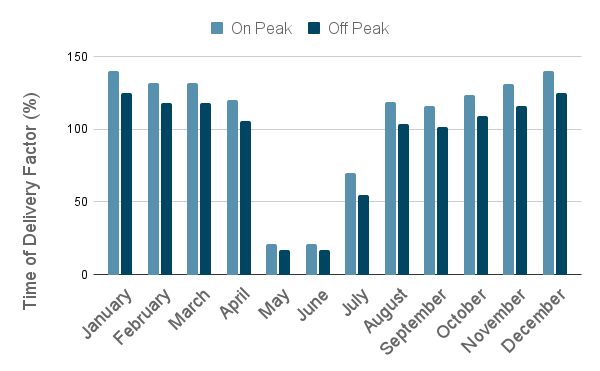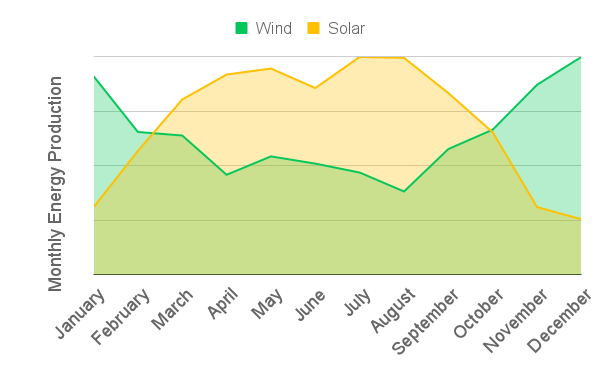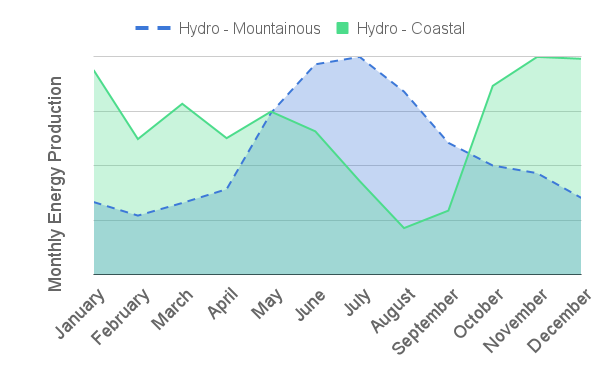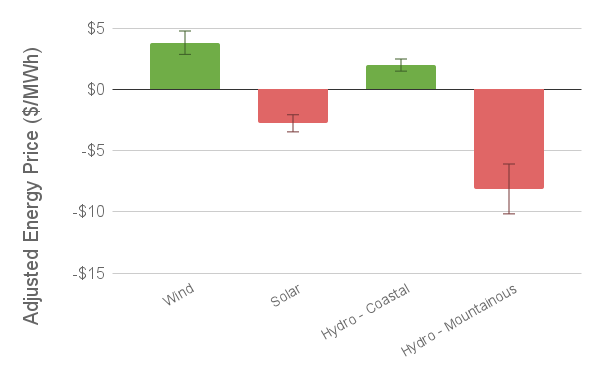|
Michael Pullinger The story of electricity in BC has been the story of hydropower for decades. But, after the world has been witness to a revolution in power grids over the past decade, is BC on the cusp of a change? While the rest of the world has switched to favouring wind and solar for new clean power generation facilities, BC Hydro has (with a few exceptions) continued to rely on hydropower facilities to meet new energy demand, which continues to supply 87% of the grid. But, BC Hydro are developing a new call for power, which paints a different picture for the future. For many months the speculation has been that this would favour wind energy, but the proposed RFP currently does not explicitly favour or penalize any specific technology. So, what does it actually say? Time of Delivery Factor The critical piece of information in the recently released planning document is the “Time of Delivery Factor”. This factor provides a multiplier increasing or decreasing the amount paid for any energy delivered by the power plant. There is a much higher amount being offered by BC Hydro for power purchased outside of the period of May to July. The heavy discount is due to the dominance of hydropower energy in the grid, and the abundance of energy produced by the annual “freshet” (melting of winter snows), which bolster stream flows across the Province. Intermittent Renewable Energy Resources in British Columbia Several well-known renewable resources are intermittent; dependent on the whims of resource availability, dictated by weather and climatic conditions. Wind, solar, and run-of-river (non-storage) hydropower are all limited at various times of the year, contingent on the availability of wind, solar radiation, and streamflow respectively. In BC (as is intuitive), most energy production from a solar power plant will be produced in the summer when the sun shines brightest. Conversely, the winter months of the year are generally more windy compared to the summer. This is demonstrated by the chart below, derived from modelled energy production data for typical wind and solar project locations in BC. In the case of run-of-river hydropower, projects with higher elevation, mountainous catchments will generate a substantially higher portion of energy in the spring/early summer due to meltwater runoff of accumulated winter snowfalls. Conversely, projects with catchments in milder climates such as low-elevation coastal regions will experience an energy profile dominated by higher runoff in the winter, coinciding with precipitation levels. The coastal regions experience lower snow accumulation, and therefore don’t see the same freshet ‘peak’. Again, these are based on modelled energy data from typical project locations in BC. Impact on Energy Revenues So, how does the time of delivery factor impact the revenues received for these resources? Since neither wind, solar, nor run-of-river hydro power plants have the ability to store energy directly, they will be forced to sell their power whenever the resource is available. We completed some energy production calculations based on ‘typical’ resource profiles in BC, and calculated the annual average energy ‘discount’ or ‘credit’ based on the time of delivery of energy from each facility. In the case of an interior/mountainous catchment run-of-river plant, the freshet-dominant energy profile will be a serious disadvantage. The same will apply to solar projects where the peak producing months of June and July are heavily penalized, although solar projects will benefit slightly from the higher daytime energy prices (on-peak). The ‘discount’ for the run-of-river projects with mountainous catchments is in the order of $8/MWh, while solar projects will experience a discount of approximately $3/MWh over the year. For wind projects, the winter and daytime-dominant energy profile comes at an advantage of approximately $4/MWh. Interestingly, well-sited, low-elevation coastal hydro projects are also at an advantage of approximately $2/MWh. Conclusions
Firstly, there are several caveats, and I don’t want to oversimplify the very complex problem of economically determining the selling price of multi-million dollar projects. Construction cost, capacity factor, location, permitting constraints, and financing arrangements will all have a substantial influence. With the reduction in cost of wind energy since BC Hydro’s last open call for power, the trend towards wind and away from hydropower is likely to be more stark than is shown here. Additionally, biomass and geothermal energy have not been reviewed here, since these are not as constrained in their time of delivery as the intermittent renewable energy sources. Nevertheless, we can see that BC Hydro’s proposed time of delivery factor will push the source of new electricity in BC towards wind energy, and away from the traditional hydropower sources where spring snowmelt dominates the available energy production. It’s likely no secret that wind energy is likely to dominate the upcoming call for power, but taking careful note of the time of delivery from a given project site might yet show some surprises. For example, carefully chosen hydropower site could still compete with wind on a time of delivery basis, provided that construction costs can be managed reasonably, compared to wind (admittedly, this is a BIG if). We’re always interested in nerding out about the economics of renewable energy, particularly in British Columbia. So, please drop a comment below, or book a free consultation with us, if you have any interesting feedback.
0 Comments
Leave a Reply. |
Categories
All
Archives
May 2024
|
Site powered by Weebly. Managed by Web Hosting Canada






 RSS Feed
RSS Feed